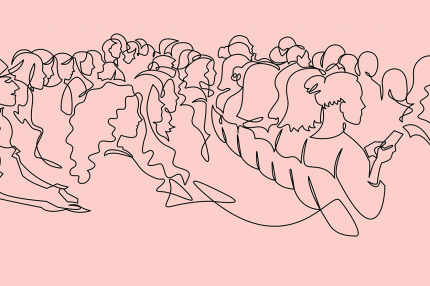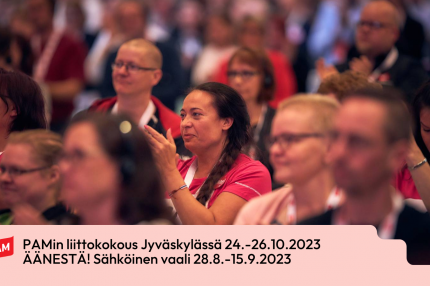Society
Voter turnout can be lower depending on your occupation–Miira Salo is going against the flow
Should you vote in the elections to parliament? Yes, no, of course YES, Miira Salo thinks. Photo: Antti J Leinonen
Miira Salo is planning to vote in the parliamentary elections, even though she is in an occupational category that often does not turn out to vote.
People’s occupations can affect whether they vote in parliamentary elections or not. At the last parliamentary elections only half of waiters voted, a research project by the University of Helsinki reveals. For teachers and managers in sales, marketing and development, nine out of ten voted.
Miira Salo is a 32-year-old waiter from Oulu who doesn’t want to be left in a social blind spot. She is planning to vote in the parliamentary elections so that the voice of workers is heard in employment matters.
The way in which the employment rate is raised matters
The next parliament will be considering how to raise the employment rate to 75 per cent or higher. Salo would like to add her own perspective to this objective. For her the way in which the employment rate is raised matters a lot.
“Employment should be genuinely rewarding, and not just on the surface”, Salo says.
As head shop steward for the Arina hospitality section of the S-Group she knows that under-employment is a big problem at least in Oulu’s hotels, restaurants and cafes.
“People say that they don’t get enough working hours”, Salo says.
This is something that the mother of three wants to bring to the attention of Finland’s parliament as new MPs are elected.

Democracy running below potential
Auxiliary kitchen and catering staff and warehouse workers are examples of occupational categories where only 58 per cent voted at the last parliamentary elections in 2015. The research project by the University of Helsinki was led by Professors Anu Kantola and Hanna Wass and doctoral student Hannu Lahtinen. The research team finds it worrying that information on the needs of various groups doesn’t properly get through to policy makers. Representative democracy is running below its potential.
Miira Salo believes that many of those doing vital jobs think they are so far from political decisions that voting seems pointless and turns them off.
The research indicates that there are other groups that are more likely not to vote. Those on low incomes, young people, people in Eastern Finland, those who have changed their place of residence and people living abroad vote less than average.
The material in the research project is based in individual-level register data for the previous elections produced by Statistics Finland. The data used come from an electronic electoral register experiment.
Advance voting in the Finnish parliament elections starts on Wednesday 3 April.





